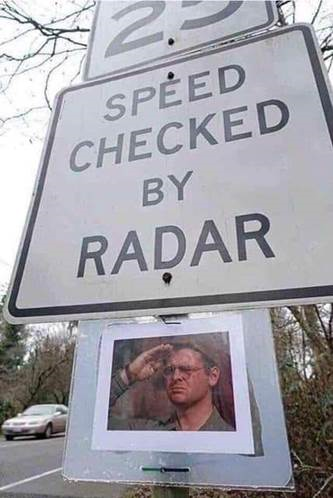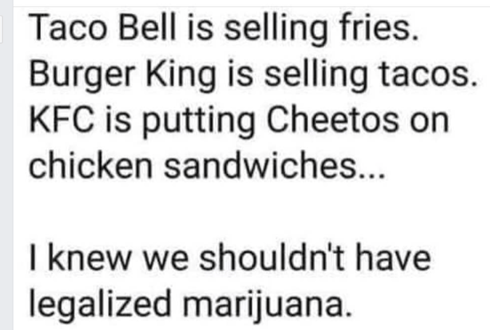 Suppose I am commercial real estate loan officer working for a bank. In the old days, I would have sat at my desk, in a three-piece suit, in one of the bank branch offices, waiting for borrowers to come visit me or for their phone calls to be transferred to me by the receptionist.
Suppose I am commercial real estate loan officer working for a bank. In the old days, I would have sat at my desk, in a three-piece suit, in one of the bank branch offices, waiting for borrowers to come visit me or for their phone calls to be transferred to me by the receptionist.
Each bank branch would have its own loan officer, and he would handle all types of loans - personal loans, credit card loans, home loans, second mortgages, equipment leases, inventory loans, accounts receivable loans, and commercial real estate loans. Those were the old days.

Today, bank loan officers specialize. There will typically be just one guy at the bank devoted exclusively to commercial real estate loans, and he will service six or seven bank branches.
This commercial real estate loan specialist will seldom come into any of the bank branches for more than a few hours per week combined. When not actually processing commercial loans, he is expected to be out in the field, calling on wealthy investors and commercial brokers (commercial realty sales brokers), in order to hustle up new commercial loan business.
Modernly, anyone calling one of his six or seven bank branches, looking for a commercial real estate loan, will be forwarded to his cell phone by the branch. A lot of the commercial real estate loan officers will not even have an office or even a desk at the bank. They will simply float to a vacant desk.

Moving On:
Suppose I am a bank commercial loan officer, and I get a commercial loan request on a small retail building currently leased to GameStop, a well-known national retailer of video games. The lease is at a good rental rate, and it is scheduled to last another seven years. GameStop appears to be making money and is growing.
The lease has an option to extend, but it is far from guaranteed that GameStop will choose to exercise its option. Both the subject commercial building and the surrounding commercial district are looking pretty tired these days. All of the new commercial growth is headed to the other side of town.
So do I make this borrower a commercial loan, knowing that this key tenant will likely move out in seven years?

The folks at Adventures in Commercial Real Estate did a great job explaining the concept of hangout and hangout risk:
The hangout is the expected outstanding loan balance owed to the lender by the borrower at the end of the lease term of a key tenant.
The hangout risk is the risk to the lender associated with the borrower’s ability or inability to repay said loan.
His "pet shark".

Obviously, if the loan is small and the borrower is very wealthy, there is very little hangout risk. On the other hand, if the loan is large - saying $7 million - and the borrower barely has a net worth of $7 million, the hangout risk is large.
An especially important consideration in investments with a single tenant, the hangout risk is determined by comparing the hangout to the dark value (value of the vacant real estate) to determine whether the borrower will be able to repay the loan.
The hangout risk can be quantified by dividing the hangout by the dark value.

Example:
A borrower secures a $100,000, 20-year loan against a property leased to WalBlues for 15 years. At the end of year 15, the outstanding loan balance is expected to be $50,000. The lender projects the value of the vacant property in year 15 to be $50,000.
Therefore the hangout risk is high, as represented by the expected LTV at the end of the lease term
LTV at the end of Year 15 = $50,000 ÷ $50,000 = 100%
since the borrower will need to re-lease the property before year 20 to be able to refinance the property to repay the lender.

Let's Do Some Horse (Rino?) Trading:
Do you know the commercial real estate loan officer for the Bank of Example? Do you have his contact information? C-Loans will trade you ONE of the following goodies for his contact information:
- Commercial Mortgage Marketing Course
- Income Property Underwriting Manual
- Commercial Loan Broker Fee Agreement
- Regional List of 750 Commercial Lenders
Want all four goodies? Find me four commercial real estate loan officers working for banks or credit unions. Sorry, guys, no other lender types.

Get My Famous Nine-Hour Training Course:
Admit it. You have always lusted in your heart (Jimmy Carter) to own my wonderful, 9-hour training course, How to Broker Commercial Loans. Unfortunately you just couldn't afford it.
If you gather for me TWENTY such commercial real estate loan officers, working for banks, I will trade you. Here are the details of the swap.
Facebook Page. Yeah-Yeah, Boooooring!
Imagine, three times per week, a commercial real estate finance (CREF) training lesson that is about the size of a Twitter post. You will learn a ton of advanced CREF terms. Borrowers, commercial brokers (realtors), and bankers will look at you with great respect.
Just follow our new facebook page.




















